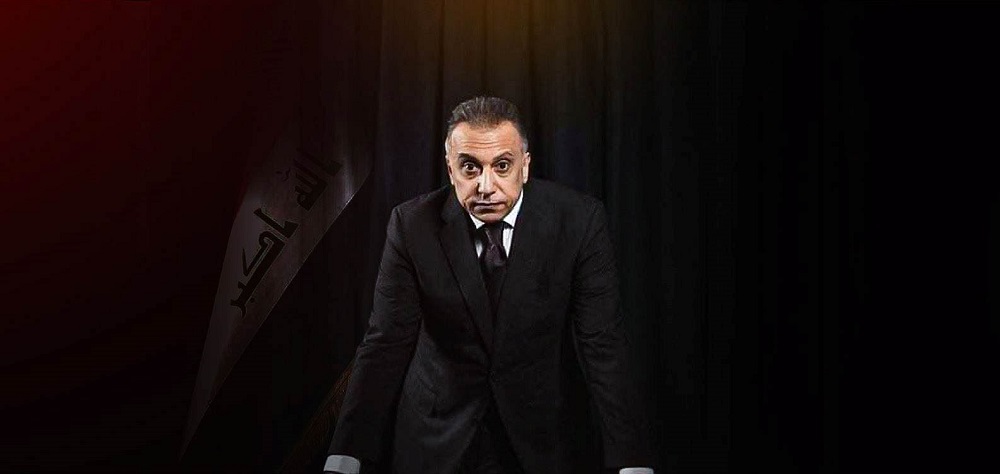Alwaght- A month after Iraqi Prime Minister Mostafa al-Kadhimi formed his government, the Iraqi people and political observers are watching with special sensitivity how the government will take steps to realize its promises. Although al-Kadhimi is dubbed the PM of the transition period, he has a duty heavier than his predecessors concerning getting things right in the country.
The most important challenge the government of al-Kadhimi should deal with is the messy and broken economic conditions. The crisis-hit economic conditions in Iraq have been the main problem for the country and the core drive behind the protests in the country in the past years and mainly last year.
But what are Al-Kadhimi’s economic priorities? How successful could he be in accomplishing his economic mission?
Fighting entrenched economic corruption
The top economic issue the new PM should handle is the deep-rooted and blatant economic corruption that is in the country. According to Transparency International, a non-state organization that annually publishes reports on corruption in the world countries based on the scale of bribery, embezzlement, and economic corruption inside the governments and judiciary, Iraq has over the past 10 years been among the most corrupt countries.
After 2003, the year the US invaded Iraq and ended the Baathist rule of Saddam Hussein, corruption became the inseparable part of Iraq’s political, economic, and social structures. In post-Saddam Iraq, all of the governments started work pledging to end corruption or at least fight it effectively. But they could not make any gains in practice.
Now the most important job of the new PM should be taking serious measures to fight corruption. But it needs to be taken into account that this is impossible in a several-month timeframe. At the same time, the government needs the helping hand of the judiciary. This means that a clear outlook for al-Kadhimi and his cabinet to bear corruption is yet to be seen.
Austerity measures on agenda
Al-Kadhimi’s cabinet was formed in one of the worst conditions of the West Asian state’s history. On the one hand coronavirus outbreak dealt serious blows to the citizens’ businesses and incomes and on the other hand the slump in oil prices made the country’s single-product economy vulnerable more than any other time.
To get a picture of the depth of the crisis the PM is facing we can take a look at the nation’s oil income since January. Iraq’s oil income in January was $6.163 billion, in February $5 billion, and in March $2.989 billion. In April, it moved down to $2.2 billion, and even lower in May, to about $2 billion. This has put the government in a real predicament, to an extent that it cannot even fully pay its employees.
Figures suggest that Iraq has over 600,000 state employees. According to Haithem al-Jobouri, the head of the Financial Committee at the Iraqi parliament, the government should pay $5 billion in salaries to the state workers but the current situation prevents it from even paying half of that sum.
In response, al-Kadhimi seems to have decided to introduce cuts to pays. Recently, he said that “we decided to cut the wages and benefits of the managers and top post holders. We have to stop high and double salaries for some people and make logical government spending.” These moves suggest possible austerity measures are about to be adopted under the new PM.
Curing the sick economy
Another mission for the new cabinet is to treat the badly ill and crisis-hit economy of the country at various levels.
To see how important is al-Kadhimi’s mission in this regard, we should take a look at unemployment rates as a key indicator. The World Bank figures say that over the past 10 years, unemployment among the 15 to 24-years-old Iraqi people has been 16-17 percent. This unemployment rate is even serious and even dangerous amid high levels of economic corruption and injustice in the distribution of the national wealth.
The spread of the pandemic may have prevented street protests of the jobless Iraqi youths but in the near future those who have nothing to lose can take over the streets afresh to raise their voice for job opportunities.
Therefore, it is so important for al-Kadhimi to know how he should counter unemployment. The fact is that unemployment is a problem far from being solvable using short-term remedies and planning. This is while the Iraqis have no understanding of this reality and expect the new government to work miracles, while something significant is unlikely to happen.
Repaying foreign debts
Yet another job the new Iraqi government has ahead is the repayment of the foreign dented, foisted on Baghdad over the past few years especially since the emergence of the ISIS terrorist group in the country in 2014.
Iraq has around $85 billion in foreign debts. This is a heavy burden for the government given critical circumstances the national economy is living. This becomes even more serious if we know that the government has ahead the super heavy costs of reconstruction of areas destroyed during the war on ISIS. This makes the foreign debt look extremely heavy and so Baghdad cannot pursue reconstruction plans at least in the next few years.



























